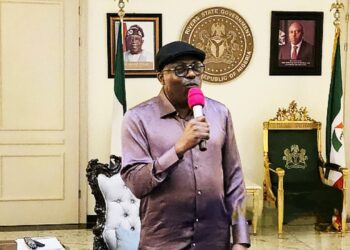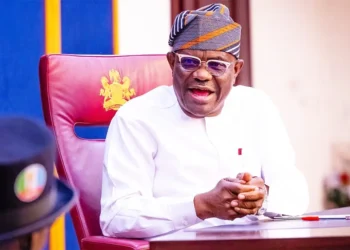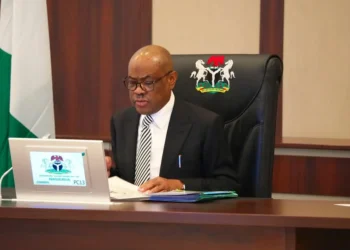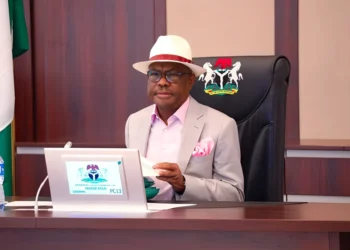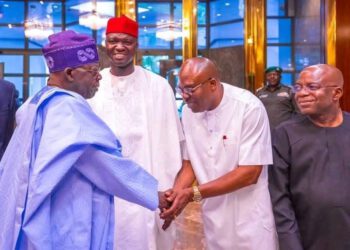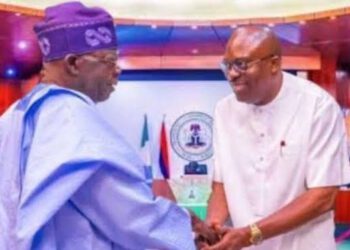In what could signal a major turning point in Rivers State’s political landscape, efforts are intensifying to reconcile Governor Siminalayi Fubara and his predecessor, Minister of the Federal Capital Territory, Nyesom Wike.
Speaking in an exclusive interview with TVC News, political analyst Obiarukwe Ndukwe disclosed that a significant meeting recently took place between both leaders, aimed at easing tensions and fostering unity in the crisis-hit state.
According to Ndukwe, Governor Fubara was not alone at the peace meeting. He was accompanied by key political figures, including Ebonyi State Governor Francis Nwifuru, Ogun State Governor Dapo Abiodun, and former Ogun State Governor Olusegun Osoba. The meeting, held at Wike’s private residence, was reportedly arranged to begin the process of mending the fractured relationship between the two men.
“Fubara didn’t go alone,” Ndukwe said. “He went with the governors of Ebonyi and Ogun, Dapo Abiodun, and former Governor Olusegun Osoba. They took him to Wike’s house. He walked straight into the living room — a place he’s very familiar with. That tells you the kind of history they share.”
Her account offers a rare behind-the-scenes view of what appears to be a carefully orchestrated diplomatic push to restore stability in Rivers State, where political tensions have recently escalated to critical levels.
The timing of the intervention is particularly significant. Just last month, on March 18, 2025, President Bola Tinubu declared a state of emergency in Rivers State following a series of political confrontations that threatened governance and public safety.
The presence of high-profile mediators suggests not only the urgency of the situation but also the recognition that Rivers’ political crisis could ripple beyond its borders if left unresolved.
Governor Fubara’s willingness to meet Wike face-to-face, rather than prolong the impasse through indirect confrontations, may signal a strategic recalibration — one that prioritizes reconciliation and governance over continued hostility. Political observers note that if the truce holds, it could pave the way for a new era of cooperation, shifting the focus from political wrangling to developmental progress.
As residents and political stakeholders monitor the situation, hopes are cautiously rising that this latest peace effort — steered by trusted national figures — could finally defuse one of the most volatile power struggles in the state’s recent history.



